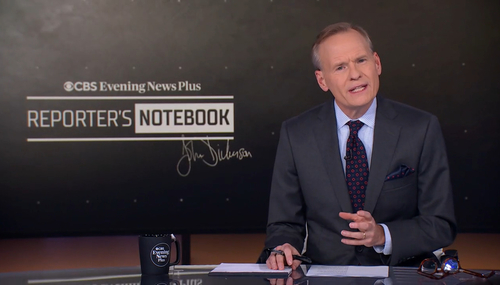
Matthews proceeded to provide the most nefarious interpretation of conversations between White House officials and journalists: “Did they try and kill the messenger? Did they use the enormous media power of the White House to discredit the ambassador, his mission and his wife at the CIA who suggested him for the mission? And in doing so, did they abuse the office and the power to which the President was elected? Did they break the law? Did they conspire to punish a critic of the war?”
That theme continued through a subsequent set-up story from David Shuster and the discussion Matthews then conducted with three guests: Newsweek's Howard Fineman, James Moore, co-author of Bush's Brain: How Karl Rove Made George W. Bush Presidential and Vanity Fair columnist Michael Wolff.
As for Matthews’ declarative conclusion that “there's no evidence even now that Saddam tried to buy nuclear materials in Africa," in fact, as the Washington Post's Walter Pincus reported on July 15, 2004, about Britain's Butler report: "Based on what was known in 2002, the Butler panel concluded that references in Britain's September 2002 dossier that Iraq was seeking to buy uranium in Africa and its repetition in Bush's State of the Union address in January 2003 were 'well founded.'" Pincus added: "David Kay, the former chief U.S. weapons inspector in Iraq, said in an interview that his group had discovered a memo in Iraq from Congolese officials offering to sell the Saddam Hussein government items including uranium."
Matthews mimicked the talking points of Wilson, though, as the Weekly Standard pointed out in July, "the bipartisan Senate Select Committee on Intelligence thoroughly shredded [Joseph] Wilson's credibility," and the magazine contended that "almost every public pronouncement of Joe Wilson's from the spring of 2003 forward is either an exaggeration or a falsehood or both."
An excerpt from the July 25 Weekly Standard “Scrapbook” item:
....The essence of his tale was that he had selflessly gone to Niger and personally debunked reports that Iraq was trying to acquire uranium there to reconstitute its nuclear program. But his account didn't bear up under close scrutiny.END of Excerpt
I. Wilson denied that his Feb. 2002 mission to Niger to investigate reports of an Iraqi uranium deal was suggested by his wife, who worked in the CIA's counterproliferation division. In fact, according to the bipartisan findings of the Senate Intelligence Committee, Wilson's wife "offered up his name" at a staff meeting, then wrote a memo to her division's deputy chief saying her husband was the best man for the job.
II. Wilson insisted both that he had debunked reports of Iraqi interest in Niger's uranium and that Vice President Cheney, whose interest in the subject reputedly prompted Wilson's trip, had to have been informed of this. The Intelligence Committee found otherwise when it questioned Wilson under oath:
On at least two occasions [Wilson] admitted that he had no direct knowledge to support some of his claims....For example, when asked how he "knew" that the Intelligence Community had rejected the possibility of a Niger-Iraq uranium deal, as he wrote in his book, [Wilson] told Committee staff that his assertion may have involved "a little literary flair."
III. In the spring of 2003, after a purported "memorandum of agreement" between Iraq and Niger was shown to be a forgery, Wilson began to tell reporters, on background, that he'd known the documents were forgeries all along. But the Senate Intelligence Committee found that the CIA (and Wilson) had been unaware of the documents until eight months after his trip. Moreover, it found that "no one believed" Wilson's trip "added a great deal of new information to the Iraq-Niger uranium story." It found that "for most analysts, the former ambassador's report lent more credibility, not less, to the reported Niger-Iraq uranium deal."
IV. Wilson's confidence that Cheney knew about his trip served as the basis for his accusation, passed along uncritically by the New Republic, that it "was a flat-out lie" for President Bush to have accused Saddam Hussein of trying to obtain uranium in Niger. He told Meet the Press interviewer Andrea Mitchell, "The office of the vice president, I am absolutely convinced, received a very specific response to the question it asked and that response was based upon my trip out there."
The Intel Committee's findings: "Because CIA analysts did not believe that [Wilson's] report added any new information to clarify the issue...CIA's briefer did not brief the Vice President on the report, despite the Vice President's previous questions about the issue."
As Senate Intelligence Committee chairman Sen. Pat Roberts concluded in the "Additional Views" section of his report: "The former ambassador, either by design or through ignorance, gave the American people and, for that matter, the world a version of events that was inaccurate, unsubstantiated, and misleading."...
But none of those complications made it into how Matthews painted the White House officials as the evil-doers when he opened the October 10 Hardball on MSNBC live at 5pm EDT and then on tape at 7 and 11pm EDT:
"Tonight: Is special prosecutor Patrick Fitzgerald building a case against Karl Rove, the architect of the Bush administration? And is the CIA leak case shaking the very political foundations of the White House? Let's play Hardball."
"Good evening. I'm Chris Matthews. Karl Rove, the President's political ramrod has been called back to the grand jury, probing the CIA leak case. If you don't think this leak case matters, ask yourself what was the most frightening case you heard for going to war with Iraq? Probably it was that Saddam Hussein was buying uranium yellow cake in Africa to build nuclear weapons. The President said it in his 2003 State of the Union address. The Vice President repeated with military precision, almost like a Gatling gun. Saddam Hussein, nuclear weapons. Saddam Hussein, nuclear weapons. Again and again. But it wasn't true. There's no evidence even now that Saddam tried to buy nuclear materials in Africa.
"We know that now because the man the CIA sent down there to Niger to check it out, sent there after Vice President Cheney asked the CIA to check it out, wrote a New York Times article a few months after the war started, that there was no deal. Worse yet, the former Ambassador Joseph Wilson wrote that the people around the President must have known there was no deal, even when the President and his people kept telling the country there was.
"How do the Bush people react to this unwelcome news? This is what the CIA leak case, which could produce indictments any day now, is all about. Did people around the President actively try to discredit that man who came back from Africa to say the yellow cake story was a phoney? Did they try and kill the messenger? Did they use the enormous media power of the White House to discredit the ambassador, his mission and his wife at the CIA who suggested him for the mission? And in doing so, did they abuse the office and the power to which the President was elected? Did they break the law? Did they conspire to punish a critic of the war, even if their weapon was the destruction of his wife's undercover career by identifying her to the public? Did they lie about their actions to government investigators, to a grand jury or even to the President himself? We could get the answers any day now, and you can bet you're going to hear them all right here on Hardball.
"Washington's been buzzing with rumors and speculations about possible criminal indictments, all this as the President's top adviser, Karl Rove, is summoned back yet again to the grand jury, only this time prosecutors say they can't promise he won't be indicted."




